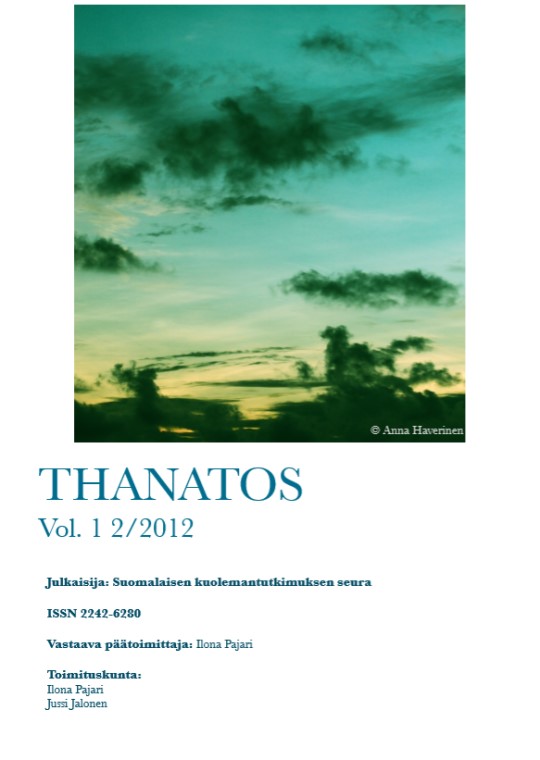Considerable Life Extension and the Deprivation View
Abstrakti
An important question related to the ethical discussion on considerable life extension is whether longevity is valuable in itself. Prolongetivism is the view that supports considerable extension of healthy and productive human life. Many views that represent prolongetivism start from the notion that life is good and thus more life is better. Still it is rarely examined whether this claim is justified. According to the deprivation view, death is a bad thing since it deprives us from something, namely life itself. The most famous proponent of this account is Thomas Nagel. The deprivation view has been seen as supporting prolongetivism but Nagel makes no such commitment: the fact that life has intrinsic value does not mean we should live as long as possible.
Nagel’s view on death is one of the most influential views in recent analytic philosophy. His deprivation view is often connected to the other versions of this view and criticized as one of them. However, many critiques miss the target when it comes to Nagel’s view because they fail to recognize crucial differences between his account and other forms of the deprivation view. Acknowledging this makes the deprivation view more defensible against different versions of the Epicurean view, which hold that death is not bad for us. Accepting this reading of Nagel’s argument also means that some implications of the deprivation view that are usually presented in academic debate are based on misunderstanding. In the final part of my paper, I will discuss in more detail the way in which the deprivation view is related to the general discussion on considerable life extension.
Julkaistu
Numero
Osasto
Lisenssi
Copyright (c) 2023 Rosa Rantanen

Tämä työ on lisensoitu Creative Commons Nimeä-EiKaupallinen-EiMuutoksia 4.0 Kansainvälinen Julkinen -lisenssillä.





